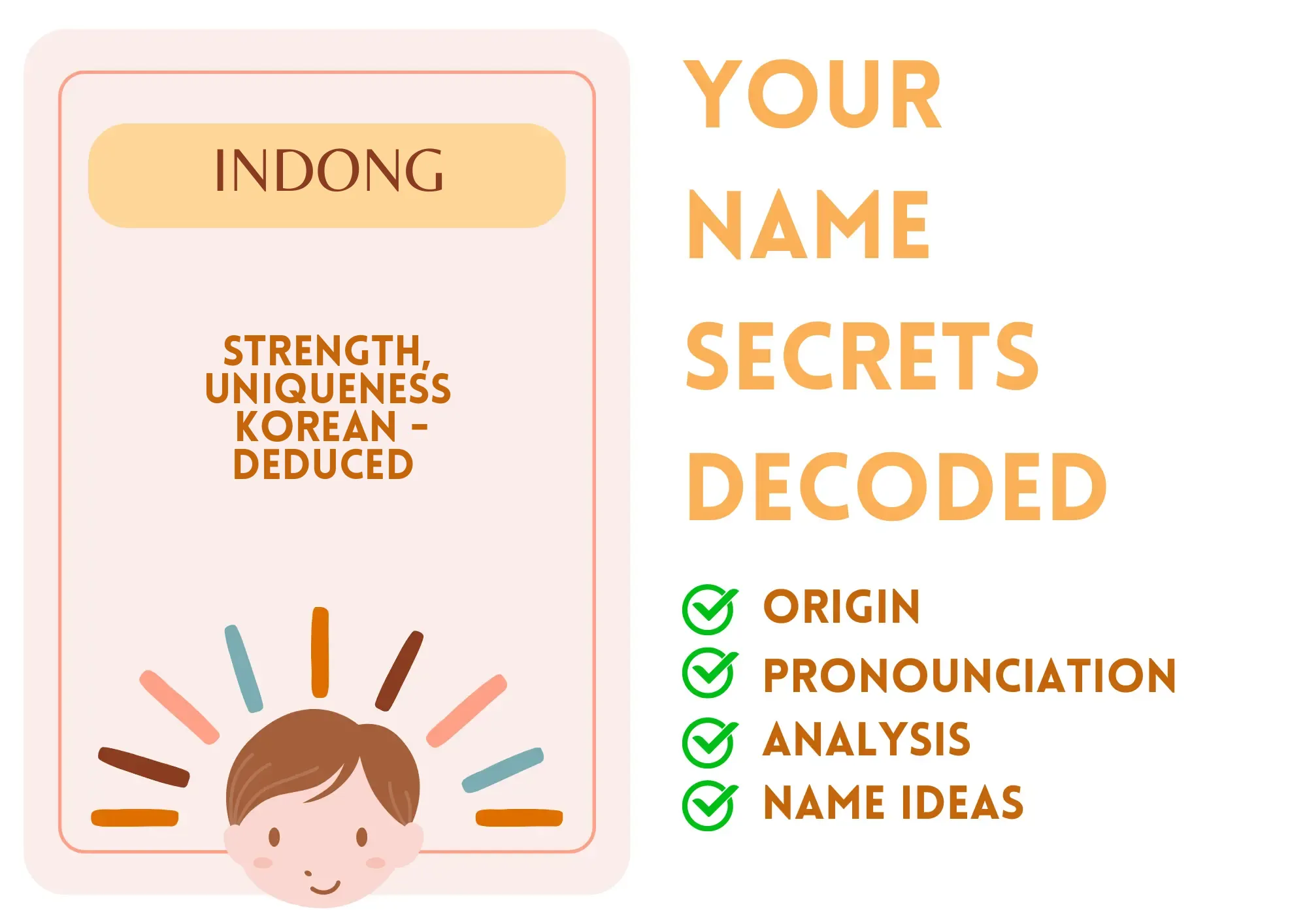
Indong
Indong is a unique name with intriguing cultural significance, derived from Korean heritage. While the direct translation remains elusive, it holds a sense of strength and uniqueness woven into its fabric. In Korean context, names are often chosen for their meanings related to nature, virtues, or aspirations, reflecting the bearer’s personality or family lineage.
The name Indong, predominantly used for boys, exemplifies strength and individuality, and is favored by parents looking for a name that reflects cultural roots and resilience. There's a positive perception associated with Indong, often regarded as a distinctive name that stands out. Its length and structure make it relatively easy to write and pronounce.
Though not widely used in popular culture or literature, it conveys warmth and reliability. The name is comfortable for casual use and holds no significant historical baggage, making it a fresh choice for the modern parent.
Basic Information
Gender: Boy
Sounds Like: in-DONG
Pronunciation Explanation: The name is pronounced with the emphasis on the second syllable, 'DONG', which rhymes with 'song'.
Summary and Meaning
Meaning: strength, uniqueness (Korean - deduced)
Origin: The name Indong is rooted in Korean culture and language, commonly understood within its regional context.
Usage: Indong is traditionally a masculine name but can also be considered unisex, depending on cultural preferences.
Name Number (Chaldean)
Name Number (Pythagorean)
Religious and Cultural Significance
Religion: Buddhism
Background: In the context of Korean culture, names often reflect Buddhist values, tying them to virtues and nature.
Cultural Significance: Indong is appreciated for its cultural uniqueness, making it a special choice for families who value individuality and heritage.
Historical Significance: Historically, names in Korean culture have reflected societal values and aspirations, indicating family lineage and desirable traits. Indong fits into this tradition as a name denoting strength, even if not documented in historical texts.
Popular Culture
Literature and Mythology: Indong might not prominently feature in mainstream Korean literature, but its essence resonates with traditional qualities that are honored in storytelling.
Movies and Television: As a relatively uncommon name, Indong does not have high-profile appearances in popular media but may be used in independent or regional films.
Feelings and Perceptions
Perception: Indong carries a positive perception, often viewed as strong and unique. People feel it stands out with its distinctive sound, evoking a sense of individuality.
Positive Feelings: Distinctive, strong, cultural, unique, reliable.
Negative Feelings: Might be perceived as unfamiliar or challenging to pronounce for non-Koreans.
Practical Considerations
Ease of Writing and Calling: Indong is simple to write and pronounce, consisting of six letters and two syllables, making it memorable and user-friendly.
Common Typos and Misspellings: In-Dong,Indon,Indongh
Common Nicknames: Indy,Dong
Compatibility Analysis
Famous Persons Named Indong
No results found for Indong.
Related Names
Similar Sounding Names:
In-do,Dong-hyun,Inda
Similar Meaning and Related Names:
Sibling Name Ideas (Brothers):
Kyungsoo ♂️
None specific
Sibling Name Ideas (Sisters):
Hana ♀️
Nari ♀️
Hindu, Buddhist, and others